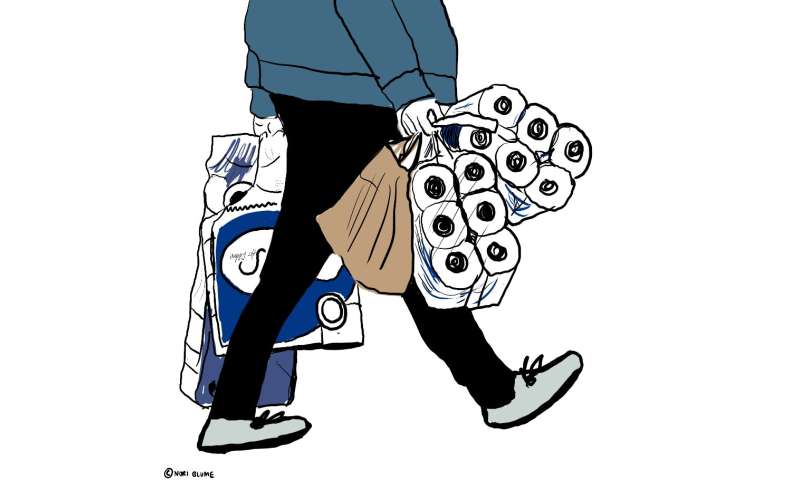
People who feel more threatened by COVID-19 and rank highly on scales of emotionality and conscientiousness were most likely to stockpile toilet paper in March 2020, according to a new study published June 12, 2020 in the open-access journal PLOS ONE by Lisa Garbe (University of Saint Gallen, Switzerland), Richard Rau (Westfalische Wilhelms-Universitat Munster, Germany), and Theo Toppe (the Max Planck Institute for Evolutionary Anthropology, Germany).
Following the fast spread of COVID-19 across Europe and North America in March 2020, many people began stockpiling commodities including toilet paper. Some companies reported an increase of up to 700% in toiled paper sales, despite calls from the government to refrain from “panic buying.”
In the new study, researchers surveyed 1,029 adults from 35 countries who were recruited through social media. Between March 23 and March 29, 2020, participants completed the Brief HEXACO Inventory—which ranks six broad personality domains—and shared information on their demographics, perceived threat level of COVID-19, quarantine behaviors, and toilet paper consumption in recent weeks.
The most robust predictor of toilet paper stockpiling was the perceived threat posed by the pandemic; people who felt more threatened tended to stockpile more toilet paper. Partly, this effect was based on the personality factor of emotionality—people who generally tend to worry a lot and feel anxious are more likely to feel threatened and stockpile toilet paper. The personality domain of conscientiousness—which includes traits of organization, diligence, perfectionism and prudence—was also a predictor of stockpiling (p = .048). Other observations were that older people stockpiled more toilet paper than younger people and that Americans stockpiled more than Europeans. The researchers pointed out that the variables studied explained only 12% of the variability in toilet paper stockpiling, which suggests that some psychological explanations and situational factors likely remain unaccounted for.
Source: Read Full Article
